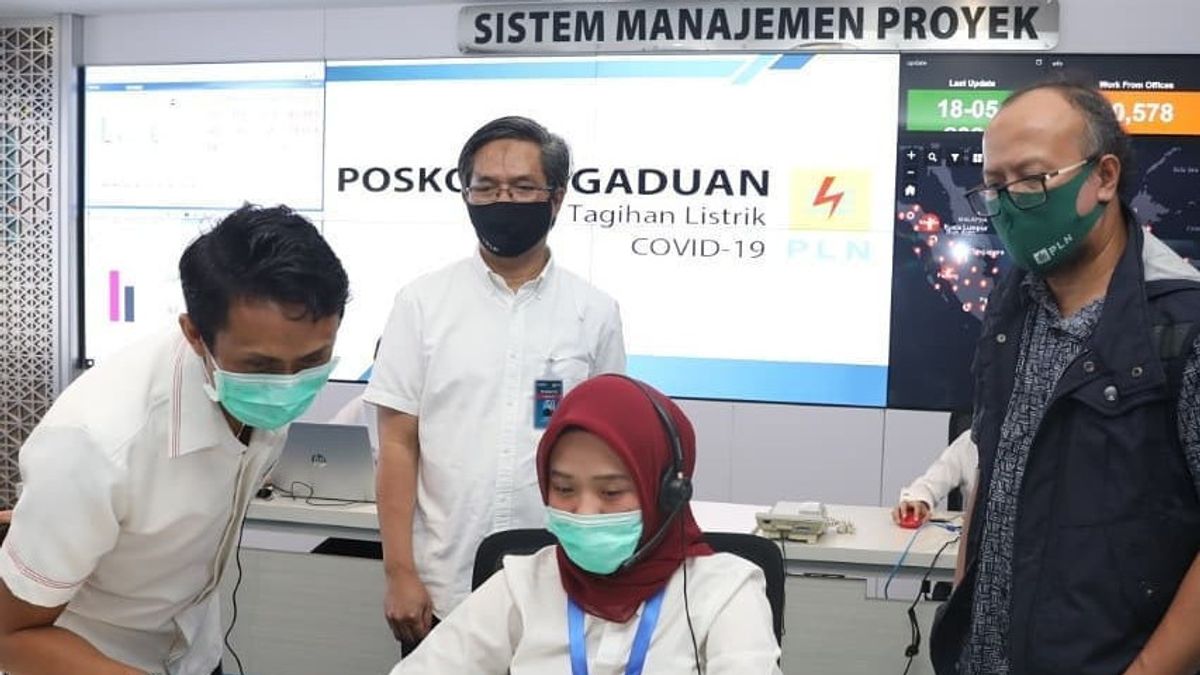JAKARTA - PT Perusahaan Listrik Negara (Persero) is currently under the spotlight of various parties due to the polemic of rising electricity bills that have occurred in the community. There are still many customers who complain about the increase in electricity bills with varying amounts.
An energy economist from Gadjah Mada University (UGM) Fahmy Radhi said that PLN was wrong from the start. Even when compared to the previous blackout, the increase in bills this time has caused a much greater burden to be borne by the people. Because, currently the economy is difficult due to the impact of COVID-19.
Fahmy said, the electricity billing system during the mid-week of COVID-19 with an average of three months was the beginning of this polemic. The use of average calculation is actually in accordance with international standards. However, the problem is that PLN has not previously provided outreach with this policy and the impact of using the system.
"In fact, there is indeed swelling. I have a record of about 68,000 complaining, but that does not include those who are silent, or those who let go. This means that many people are harmed by the swelling," he said, in a virtual discussion entitled 'Electricity Bill Polemic goes up: What is the Fate of the People? ', Friday, 19 June.
According to Fahmi, he divided two categories of electricity bill increases. First, a reasonable increase, namely the increase in electricity bills by an amount that is still reasonable due to the increase in electricity consumption.
Then, he continued, an unnatural increase, namely an increase in abnormal electricity bills by thousands of percent. One example was experienced by Teguh, a welder from East Java who experienced a surge in electricity bills of up to Rp. 20 million. Even though his place of business did not operate during the COVID-19 outbreak.
"If there is a reasonable increase, PLN needs to provide a solution to get installments for 3 months. But the swelling is unnatural, it must be investigated why. Is it because it is leaking or there are other problems. So PLN must be concerned," he said.
Fahmi emphasized that if the results of the investigation show that such a large defect was caused by PLN's mistake, then this state-owned company must be responsible for waiving bills charged to customers.
Should Not Disconnect Customer MetersAccording to Fahmi, during the process of resolving and finding out the source of the problem over the surge in electricity bills complained by 68 thousand people, PLN should not cut off the customer's meter.
Furthermore, Fahmi said, so far the system in effect is that when the customer does not pay for electricity, the electricity supply will be cut unilaterally by PLN. However, in the process of investigating the source of the increased bill, this should not be done.
"During the settlement process, PLN is not allowed to turn off the electricity meter in the consumer's house. That is if by the system when it has not paid, the meter is immediately cut off. Now I think there must be a policy, not to disconnect anyone first. Because this is in the settlement process so that the electricity population remains flame, "he said.
The English, Chinese, Japanese, Arabic, and French versions are automatically generated by the AI. So there may still be inaccuracies in translating, please always see Indonesian as our main language. (system supported by DigitalSiber.id)











